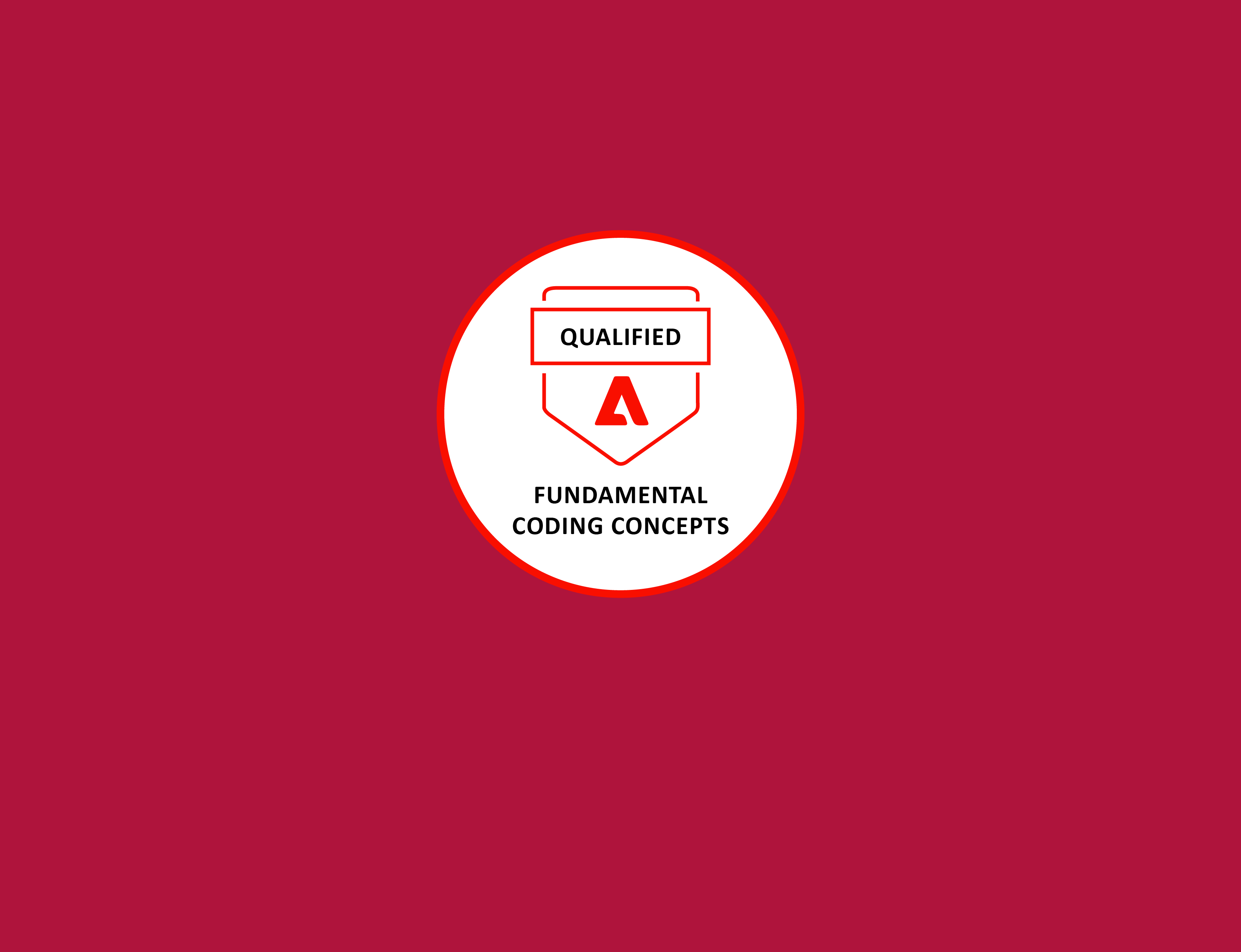Highlight your skills and become Adobe Qualified.
Prove your hands-on experience and gain a competitive edge in your industry by earning a credential through the Adobe Qualified Credential Program.

Prove your hands-on experience and gain a competitive edge in your industry by earning a credential through the Adobe Qualified Credential Program.
This certification is perfect for learners who have completed an introductory programming course and are ready to deepen their coding knowledge. It builds on foundational skills, helping learners strengthen their understanding of key coding concepts while expanding problem–solving abilities through engaging, hands–on projects.
Globally recognized, this qualification covers essential programming principles through modules such as Scratch programming, game development, and interactive coding. With a focus on creativity, game design, and advanced problem–solving techniques, it prepares learners for more advanced programming courses and opens up exciting opportunities in the world of coding.
Level 2: Fundamental Coding Concepts is designed for learners who have a basic understanding of programming and are ready to expand their coding skills. It is ideal for students, young learners, or anyone eager to dive deeper into the world of programming and game development.
This certification helps learners strengthen their understanding of key coding concepts, fostering creativity, critical thinking, and problem–solving abilities. It also prepares them for more advanced programming courses, paving the way for future opportunities in the programming and game development fields.
Level 2: Fundamental Coding Concepts is a flexible, modular certification program that allows learners to build on their introductory programming skills at their own pace. Each module is designed to deepen understanding of key coding concepts, with the option to complete them individually or in combination. This flexible structure empowers learners to personalize their learning experience based on their interests and future programming goals, strengthening their abilities in game development, problem–solving, and creative project design.
There are three modules:
Each module in the Level 2: Fundamental Coding Concepts certification is assessed through hands–on projects and coding tasks, enabling learners to apply both theoretical knowledge and practical skills. This modular approach allows learners to progress at their own pace, concentrating on areas that align with their individual programming goals.
Upon completing all modules, learners will receive the Adobe Qualified Programming Associate – Level 2 Certification.
There is no Pass or Fail. Results are reported in Bands 1–4, with Band 4 being the highest. Band 1 indicates a limited understanding of fundamental coding concepts; Band 2 reflects basic but systematic knowledge; Band 3 demonstrates a solid understanding and practical application of key concepts, and Band 4 signifies a comprehensive mastery of the material.
Level 2: Fundamental Coding Concepts is open to individuals who have a basic understanding of programming and are eager to build on their foundational knowledge.
It is suitable for learners who are: